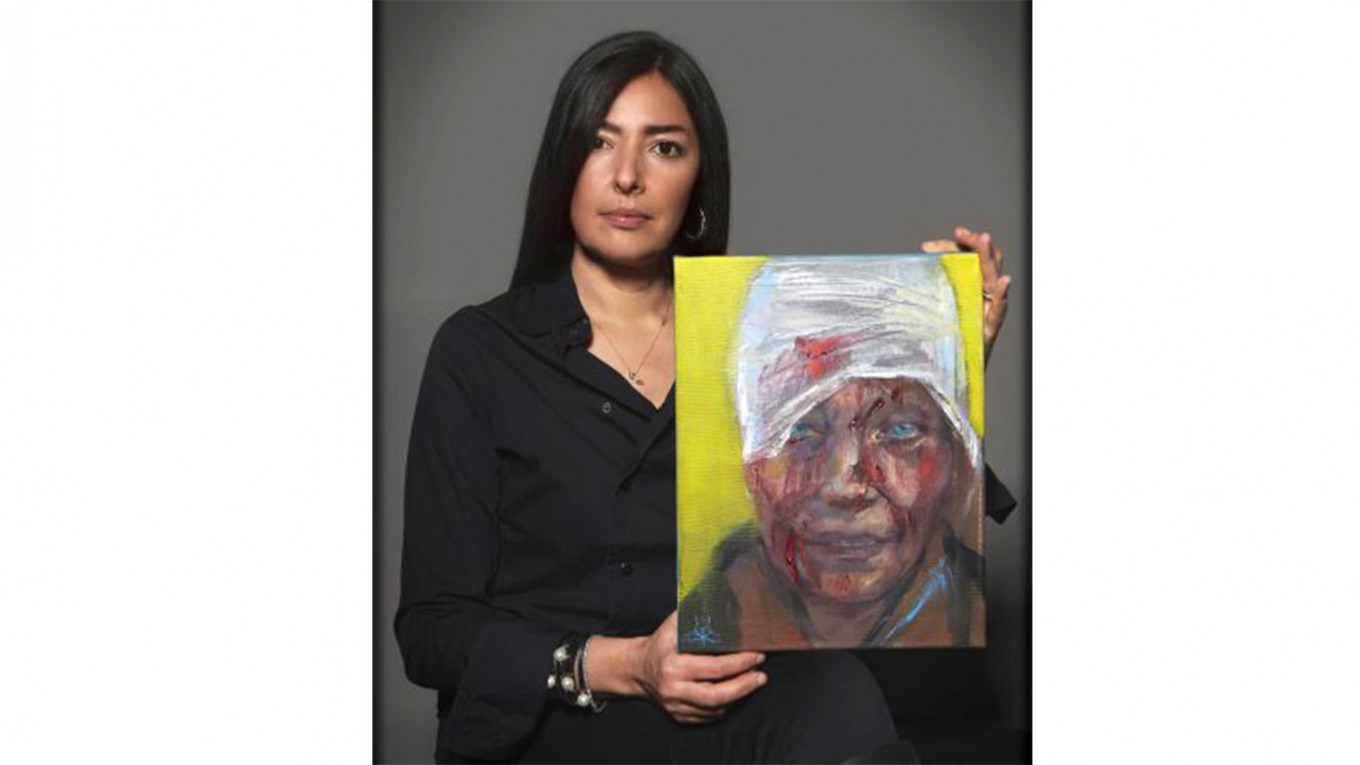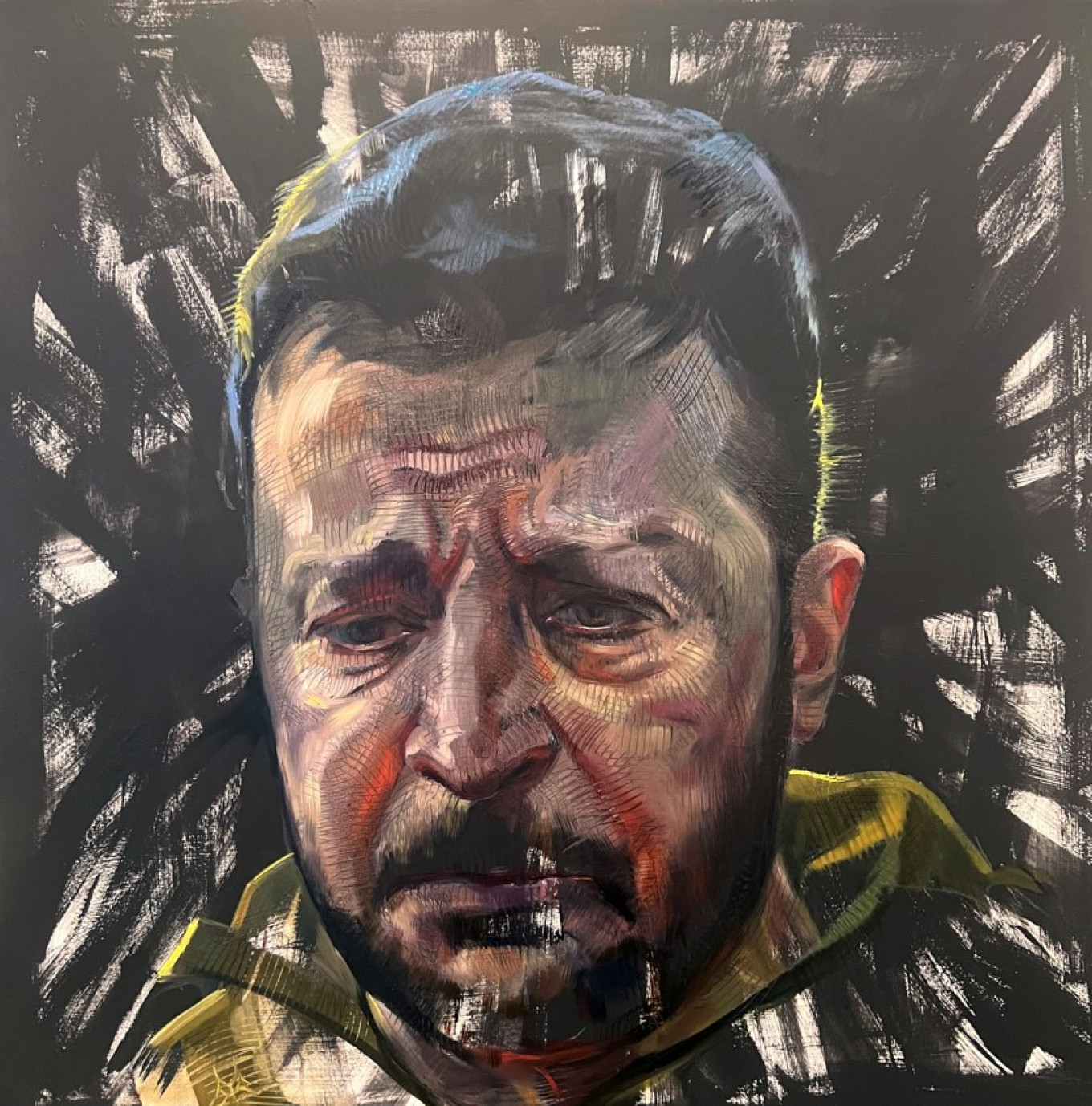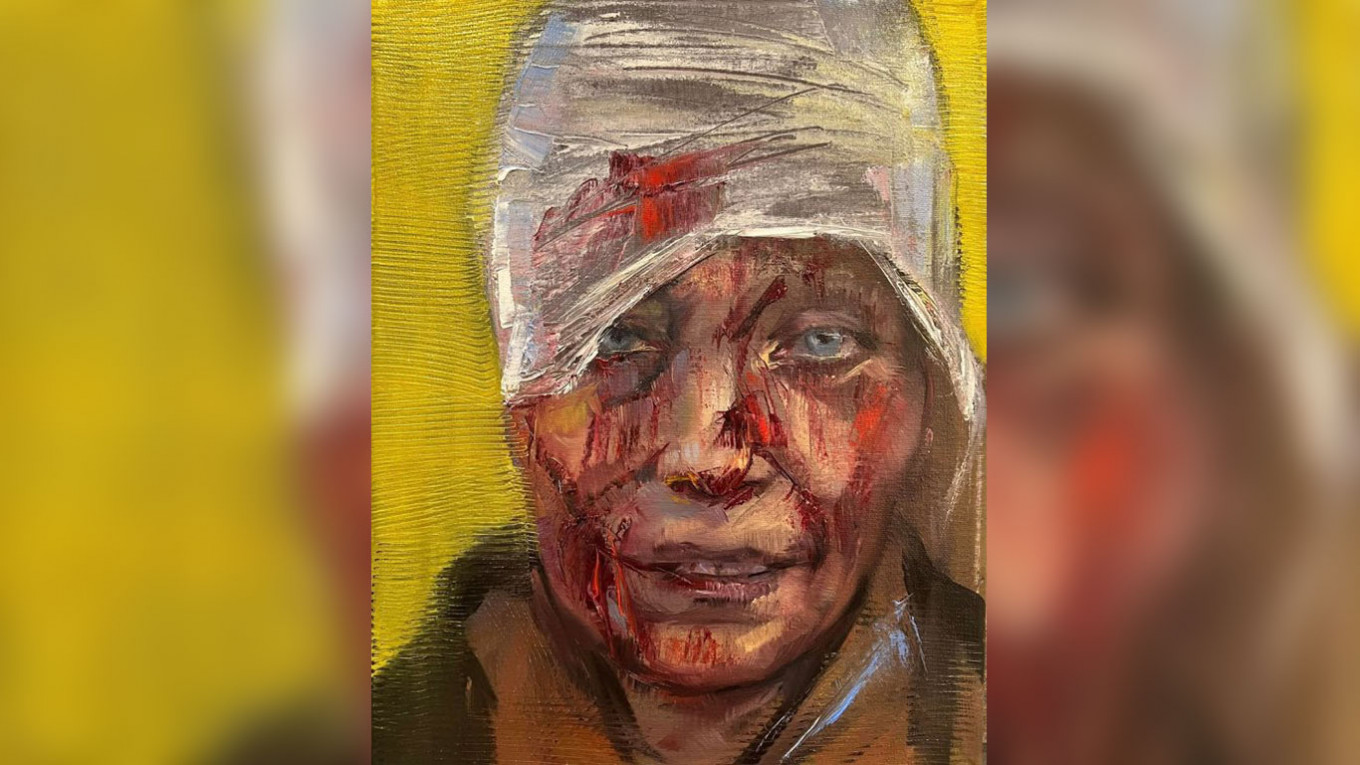“First Face of War,” a portrait of a woman badly wounded during a Russian military attack in Ukraine, has become an image that encapsulates the calamity of war.
Zhenya Gershman, a Russian-born American artist, was inspired by a photograph by Wolfgang Schwan that was taken after the 52-year-old Ukrainian teacher survived a bombing by Russian forces in Kharkiv. Although she survived, her home was completely destroyed.
“It began by an impulsive desire to do a painting that would reflect how I felt about the war and share it with the world,” Gershman told The Moscow Times.
The oil painting “First Face of War” depicts a woman with bandaged head, face covered in blood, and dark blue eyes that look out directly at the viewer.
The background of the painting is yellow, and Yelena’s eyes and some of her clothing are blue — a reference to the Ukrainian flag and its suffering nation.
When she picked up her brush to paint, Gershman didn’t have a plan — she simply googled for victims of the Ukraine war. When the artist first saw the photograph of Yelena, she didn’t know how significant it was — she just felt an immediate sense of urgency and connection.
“Her face stopped me,” she said.
Gershman began to paint and didn’t put down her brushes until the portrait was completed. Her friend suggested that she contact the photographer and subject for their permission to use the painting to help Ukrainian people.
Gershman said that although she thought it would be impossible to reach them, she was able to quickly get in touch with Schwan who immediately supported her initiative and put her in touch with Yelena Kurilo.
Gershman said that when Kurilo found out about the idea, her first words were: “I agree to do it as long as you don't give me any money. I don't want any money, I just want this to help my country.”
The painting was sold by Heritage Auctions for $100,000, and all the proceeds were donated to aid and support the people of Ukraine.

Zhenya Gershman, who is the granddaughter of the famous Soviet poet Mikhail Matusovsky — author of the lyrics to “Moscow Nights”— usually paints dramatic, monumental portraits. “Face of War,” however, is only 14 X 11 inches (35 x 28 cm).
“The smaller the painting, the closer you want to come towards it.”
Gershman’s goal is for people to look at the portrait for as long as it takes to understand the enormity of what is happening in Ukraine.
“The longer they look, the deeper they feel.”
Gershman said that Kurilo’s portrait was “painted with oil and tears on canvas” because she was crying almost the entire time she was painting.
“Face of War” isn’t the first time Gershman has spoken out against Russia’s political regime and its victims through her art. The portrait came right after she finished a series dedicated to political prisoner and opposition leader Alexei Navalny.
As a Russian emigree and artist, Gershman feels proud of the richness of Russian culture and embarrassed by its politics. Yet she believes that art and culture can prevail over dictatorships.
After “First Face of War” was sold at the Heritage Auctions to benefit Ukraine, Gershman launched an art movement called Brushes over Bullets in which she could use her "brush against the war.”
“It was amazing to see that a small, little, tiny canvas can literally raise money to put bandages on thousands of people and heal thousands of people.”
Through Brushes Over Bullets, Gershman wants to encourage people to create and share their art to demonstrate how many international artists stand with Ukraine.
“We will win.”
For more information about the charity Brushes Over Bullets, see the site here.

A Message from The Moscow Times:
Dear readers,
We are facing unprecedented challenges. Russia's Prosecutor General's Office has designated The Moscow Times as an "undesirable" organization, criminalizing our work and putting our staff at risk of prosecution. This follows our earlier unjust labeling as a "foreign agent."
These actions are direct attempts to silence independent journalism in Russia. The authorities claim our work "discredits the decisions of the Russian leadership." We see things differently: we strive to provide accurate, unbiased reporting on Russia.
We, the journalists of The Moscow Times, refuse to be silenced. But to continue our work, we need your help.
Your support, no matter how small, makes a world of difference. If you can, please support us monthly starting from just $2. It's quick to set up, and every contribution makes a significant impact.
By supporting The Moscow Times, you're defending open, independent journalism in the face of repression. Thank you for standing with us.
Remind me later.






